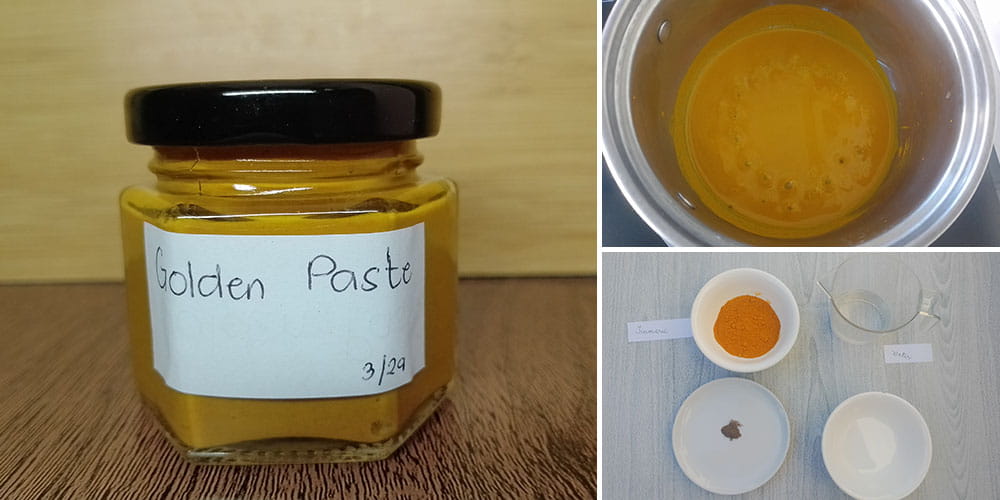
Herbal Glossary: Remedies for Your Thyroid
The thyroid is an organ in the endocrine system that can be affected by a variety of diseases. It might produce little of its hormones or overproduce them. It can get inflamed, enlarged, or attacked by the body’s immune system. Sometimes, the symptoms of thyroid problems are not easily noticed. Some symptoms are only diagnosed and treated when they become worse. That’s why in today’s article I put together a herbal glossary with the best remedies for your thyroid.
Common Thyroid Problems
The thyroid is the butterfly-shaped organ at the base of the neck. Its work is to secrete hormones that regulate the body’s metabolic activities and are controlled by the pituitary gland and hypothalamus.
It particularly secretes two hormones, T3 and T4, which must remain at normal levels. However, there might be cases when these hormones increase or decrease. The changes in the hormone levels can result in different diseases and need to be dealt with.
Hypothyroidism is a decrease in thyroid hormone production.
Hyperthyroidism is an increase in hormones due to overactive thyroid.
Goiter is the enlargement of the thyroid gland as a result of either the decrease or increase in hormones.
Thyroiditis is the inflammation of the thyroid gland.
Grave’s Disease is an autoimmune disorder that causes an overactive thyroid.
Hashimoto’s Disease is an autoimmune disease that attacks and stops hormone production.
Generally, a thyroid problem is a dysfunction of the thyroid gland or immune system and can be genetically inherited. It may also occur due to hormonal imbalance, excessive iodine or its deficiency, bacterial infection and environmental toxins.
Stress, smoking and pregnancy may also increase the risk of thyroid disorders.
A malfunctioning thyroid gland manifests some symptoms like chronic fatigue, cold extremities, joint pains, dry skin, hoarseness of voice, bulging eyes or neck, or difficulty swallowing.
Check out these hidden warning signs you might have a thyroid problem.
Herbal Glossary: Remedies for Your Thyroid
Each thyroid disorder is treated differently. Even herbs should be taken with caution to avoid exacerbating the problem. Here are some of the herbs that can bolster some of these thyroid diseases.
Ashwagandha: Withania somnifera is an adaptogenic herb that maintains the body’s balance and normalizes the metabolism. It minimizes chronic stress and improves the functioning of the endocrine system. Ashwagandha can treat hypothyroidism by converting the thyroid hormone into an active form for the body to use.
Astragalus: Astragalus membranaceus is a trophorestorative herb that can bring balance to a specific organ that needs healing. When consumed, astragalus can target the stressor in the body and bring it into balance to restore its functions. It can increase the thyroid activity and is therefore beneficial in hypothyroidism.
Black Cumin Seeds: Nigella sativa is referred to as the universal healer for its ability to treat a wide range of diseases for many centuries. Its powdered form holds promising results in improving the thyroid status in Hashimoto’s Disease. It can reduce inflammation, thyroid stimulating hormones (TSH) and anti-thyroid peroxidase (anti-TPO) and raise the T3 concentration.
Black Walnut: Juglans nigra has been around for centuries and is used as a supplement for various health problems, including thyroid disorders. Black walnut hull is rich in iodine which helps regulate the functions of the thyroid glands. Eating 2 to 3 black walnuts may be beneficial for hypothyroidism.
Bladderwrack: Fucus vesiculosus is technically not an herb but an edible seaweed used for treating hypothyroidism and goiter. It contains a high amount of iodine to fulfill the iodine deficiency and increase the T3 and T4 levels. It is prepared by boiling and steeping 2 to 3 tbsp of the dried seaweed in a cup of water. Drinking the infusion three times a day is beneficial for hypothyroidism and Hashimoto’s Disease.
Bugleweed: Lycopus virginicus is a plant from the mint family that is often found in wet areas. Traditionally, it was used as a remedy for cough but modern medicine discovered its effectiveness in treating an overactive thyroid. Bugleweed contains lithospermic acid that can balance the hormone to ease mild hyperthyroidism and Grave’s Disease.
Both Hashimoto’s thyroiditis and Graves’ disease are chronic conditions that require ongoing management. Medicinal mushrooms offer benefits for autoimmune diseases due to their immunomodulatory effects.
Nicole Apelian’s Mushroom Trio bundle features three potent adaptogenic botanicals: Lion’s Mane, Reishi, and Turkey Tail, all extracted from fruiting bodies. Each mushroom offers distinct, scientifically proven benefits, such as reducing inflammation, regulating the immune system, combating viral and bacterial infections, enhancing cognitive function, promoting Nerve Growth Factor (NGF) production, inhibiting cancer, alleviating stress, increasing energy levels, improving mental clarity, and helping manage blood sugar levels. You can find this bundle, plus many other remedies, in the Apothecary.
Ginger: Zingiber officinale is a warm spice that can help improve metabolic functions. It is considered a safe herbal remedy for hypothyroidism. Ginger is also used by patients undergoing hypothyroidism treatment to relieve nausea and gastrointestinal problems the treatment can cause.
Siberian Ginseng: Dried Siberian ginseng (Eleutherococcus senticosus) is a completely different plant from the true ginseng: the Panax ginseng and American ginseng. Also known as eleuthero, Siberian ginseng is a very effective adaptogen that boosts thyroid and adrenal health. It can improve the energy level to ease the triggers of Hashimoto’s Disease.
Lemon Balm: Melissa officinalis is a calming herb that can ease stress, anxiety and depression, as well as reduce thyroid function. It is a good herbal remedy for hyperthyroidism and Grave’s Disease. Daily consumption of lemon balm leaf infusion may help regulate hormonal levels.
Stinging Nettle: Packed with antioxidant, anti-inflammatory and tissue-tonifying properties, stinging nettle is an effective herb for thyroid protection. Stinging nettle (Urtica dioica) can eliminate toxins, balance the hormones and inhibit autoimmune disorders. An infusion of stinging nettle leaves of one cup a day for two weeks may be effective in countering hyperthyroidism.
⇒ Here you can find potent Lemon Balm and Stinging Nettle tinctures available for purchase.
Moringa: The adaptogenic property of Moringa Oleifera can address thyroid problems by regulating thyroxine and triiodothyronine production. It is rich in polyphenols that also boost the metabolism and reduce the symptoms of hyperthyroidism. Two cups of fresh moringa leaves or two teaspoons of moringa powder a day may help tone an overactive thyroid.
Sage: Sage tea is a safe and effective tea to take to reduce the risk of thyroid diseases. Sage (Salvia officinalis) is rich in rosmarinic acid that can reduce the thyroxine output. It can improve the metabolism and reduce the risk of cancerous and non-cancerous thyroid diseases.
Selfheal: Prunella vulgaris, or selfheal plant, can normalize the actions of the thyroid gland and prevent the development of goiter or tumors. Selfheal may either stimulate an underactive thyroid or reduce an overactive one. It may also significantly reduce inflammation of the thyroid gland and modulate the function of the immune system to prevent autoimmune thyroid problems.
Turmeric: Curcuma longa has a wide range of therapeutic effects in different biological pathways. It possesses excellent anti-inflammatory, antioxidant, anti-proliferative, and adaptogenic properties. It can reduce inflammation to alleviate thyroiditis and goiter, or prevent cancer.
Turmeric contains curcumin which balances the hormones and alleviates hypothyroidism and hyperthyroidism.
DIY Golden Turmeric Paste for the Thyroid
It can be used to prevent thyroid disorders or alleviate any existing symptoms.
There are various ways of taking turmeric, such as infusing it as a tea or tincture. However, it is a fat-soluble spice, which means it does not dissolve in water and may not be very well absorbed by the body.
To increase its bioavailability, turmeric is best dissolved in fat and combined with black pepper.
Ingredients:
- 4 tbsp turmeric powder
- ¼ cup filtered water (add more water in the process, to create a paste)
- ¼ tsp ground black pepper
- 1 tbsp ghee, coconut oil, or olive oil
Steps:
- Heat the turmeric and water over medium heat to a slow simmer.

- Add more water if the mixture is dry. Turn off the heat and add the oil (or ghee) and black pepper. Mix well into a thick paste consistency.

- Allow to cool before transferring it to a small jar with a lid.

How to Use
Store in the refrigerator. Take ¼ to ½ tsp of the golden paste every day for a week. You can take it straight or dissolve it in a small amount of milk.
If you respond well to the remedy, increase the amount to about 1 to 2 tsp the following week and continue taking it for no more than two months.
You may also prepare this golden paste recipe in bulk by increasing the amount of ingredients. You can adjust the consistency by adding more turmeric or water and it will not affect the potency.

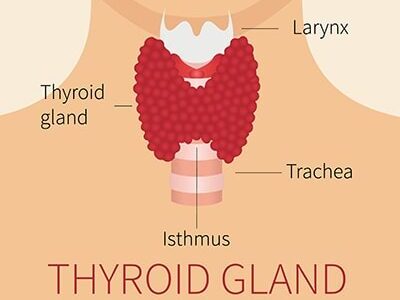
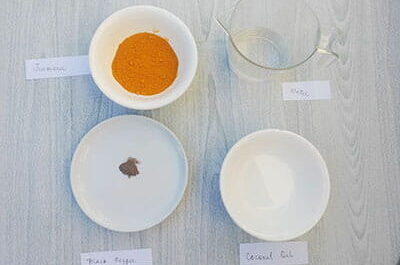
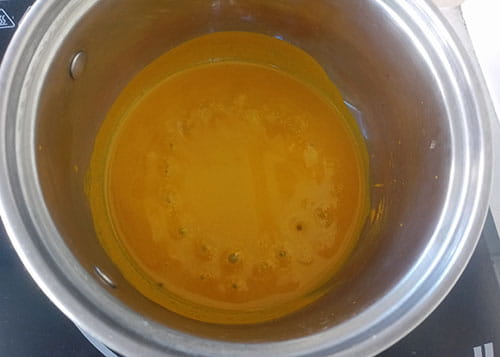
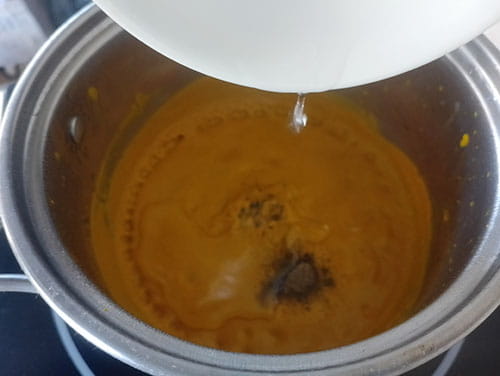
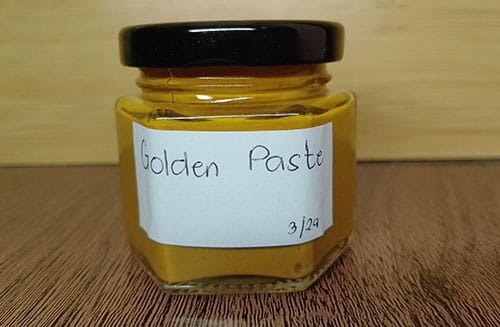
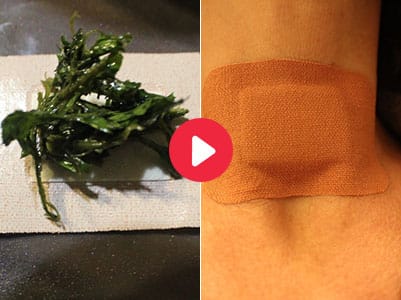
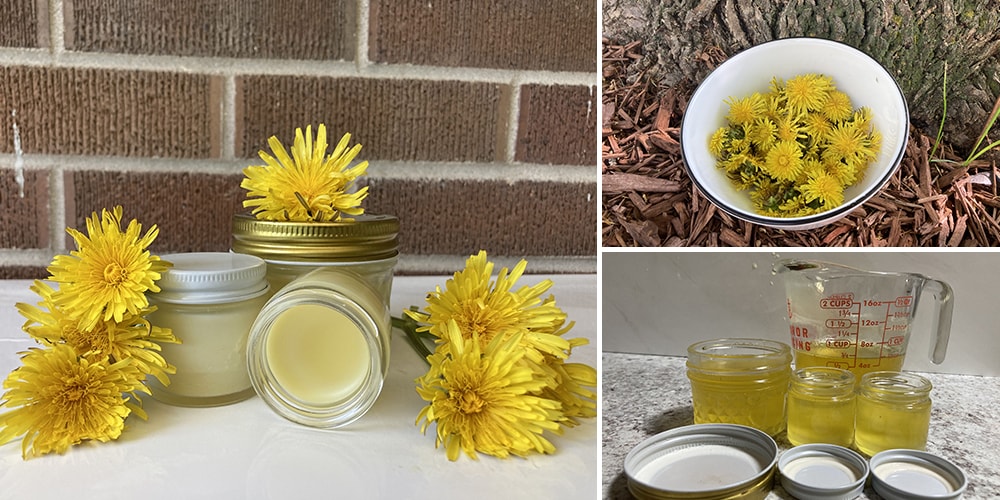
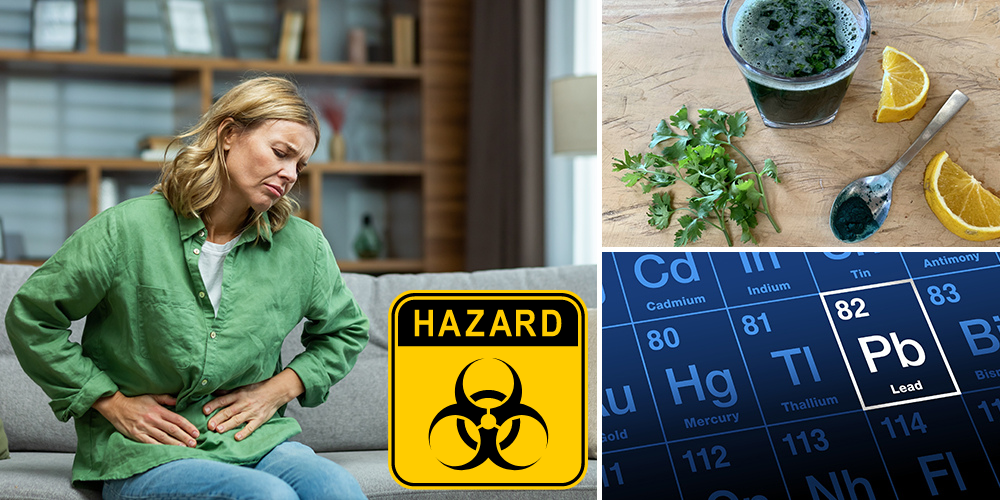
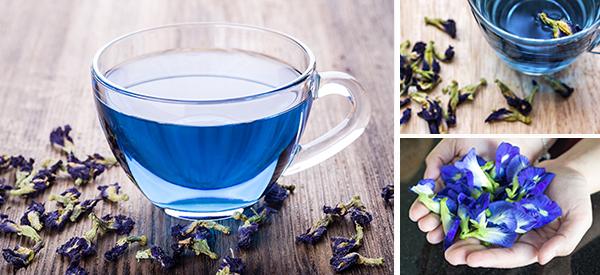
My thyroid was totally removed in 1990. I need help. Where can I buy the mushrooms?
Thank you….Kay
Hi Kay,
You can find Nicole’s medicinal mushrooms tinctures here:
https://nicolesapothecary.com/
Many blessings and good health!
First it say’s black walnut hull, then it say’s eating black walnut.
It didn’t say the walnut hull. Which is good because you can get very sick from consuming iodine !
Yes I’ll all for eating walnuts, but why reference one ( the Hull ) and tell you to take the other ( the nut ) ?
Yes I had my thyroid burned with the nuclear medicine in 2009 they said I had Graves’ disease but I would sleep all the time and I mean all the time I now hear that Graves’ disease you’re supposed to be very hyper from it I was tired fatigue fatigue and would sleep all the time I would wake up feeling worse than when I went to bed sleeping from 18 to 20 hours a day they said I would die if I didn’t either have surgery and remove the thyroid or burn it with nuclear medicine since I have taken the nuclear medicine I have had problems all over my body I had 2020 vision and within two months after taking the pill yes one pill I had to get glasses I have had problems all over my body cents I am tired all the time I am fatigued I cramp my legs my bad back My arms my neck is there anything you can recommend that I may take that would give me energy and help me to not feel so fatigued all the time I don’t have a thyroid no more because they burned it and if I would know what I know now I sure would have never taken the medicine please let me know if there’s something you could recommend thank you
First, I AM NOT A DOCTOR. I am a person who has MS and thought I was going to die, until I got off the meds, and took it upon myself to figure it out. My family raised us on herbs, food and alternatives, but we always got medical attention when necessary! Thankfully, I have Doctors that gave me that ability and monitored me while I was figuring out what herbs, foods and supplements worked for me. Modern Medicine is necessary at times, but the mind and body can help to heal itself given time and circumstance (my opinion). I’m doing stellar, so I’ll throw this advice your way and recommend you speak to your doc about it. In all sincerity, I would go to an endocrinologist and get a complete panel done. I would also seek out a special infection internist. It doesn’t sound like they have diagnosed you fully, and you may have underlying conditions they didn’t spot. Specialists are good in their own fields, not always in a big picture kind of way. Also, I would suggest taking a probiotic like Nexabiotic (brand name) as it contains all 3 necessary strains, garlic and Thyme DAILY, resveratrol, turmeric and vitamin D, E and C; especially vitamin D.
It’s very hard to find dosage advice for hypothyroidism using herbs…
Your book might be.beneficial, but it would be better if I received my purchase to find out for myself. I think this is a scam. Note everyone, you pay but don’t receive.
Robyn Bruhn
I’ve got the book…and another by her. I am finding them very educational. She has actually inspired me and a friend to start an herbal medicine garden.
Hi Red,
Thank you so much for supporting our work, and for your kind words!
We are very happy to hear you enjoy the books, and we hope your medicinal garden will be bountiful.
Many blessings and good health!
I have received two different books of hers on two different occasions. Very quick to ship, too. I’ll admit, I too thought the whole ordering process was weird but I think your experience is not their norm. I hope you can get ahold of them to receive your book and I also hope that you received your immediate download of the book.
Hi Beth,
Thank you so much for your comment, and for sharing your honest feedback!
We hope you enjoy the books.
Many blessings and good health!
I have paid for and received both her books. Very highly recommend. I refer to them often.
Just a thought, did you pay for the digital version only or the hard copy too.
If you paid for the hard back perhaps it was lost in the post. That can happen.
Hi Deb,
Thank you for supporting our work.
We’re glad to hear you enjoy your books!
Many blessings and good health!
Hi Robyn,
Thank you for supporting our work!
Please send us an email at support@thelostherbs.com. We will make sure to provide you with all the information you need regarding your order.
Many blessings and good health!
Could you please check/correct the quantities for the Golden Turmeric Paste recipe above? 4 TB turmeric and 1/4 cup water is too dry. I’ve started the recipe; increased water to 1/2 cup so I have enough liquid to cook. Should it be 4 TEASPOONS instead of tablespoons? Or more water?
Hi Wanda,
Thank you so much for trying out this recipe and for bringing this to our attention!
We are sorry for the confusion!
The author of the article meant to say that you should start with 1/4 cup of water and add more to create a paste-like consistency. Adding more water does not affect the potency of the turmeric.
Many blessings and good health!
would be OK to add the mixture to a cup of green tea?